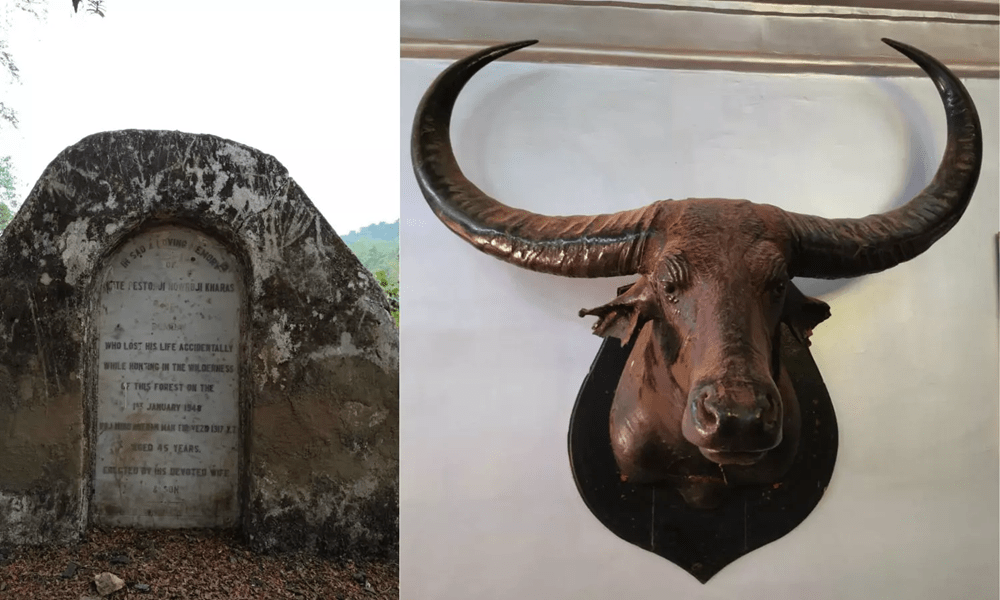Every New Year’s Day, the remote village of Kutru in Bastar, Chhattisgarh, comes alive with a poignant ritual that relives the tragic love story of a Parsi couple and the vengeance of a wild buffalo. Villagers gather at a grave in the village to honor Pestonji Nowroji Kharas, a Mumbai-based businessman killed by a buffalo in 1948.
The memorial, marking the site of Kharas’ death, is a symbol of the enduring love between him and his wife, Rozi, and the wild vengeance of the buffalo that killed him. On January 1, 1948, Kharas, along with friends, had ventured into the forest near Kutru for a hunting trip. After shooting a wild buffalo, Kharas approached the animal, assuming it was dead. But the buffalo suddenly rose, charged at Kharas, and tossed him with its horns for about 100 meters, before repeatedly stabbing and kicking him until he died.
Rozi, upon learning of her husband’s death, immediately traveled to Bastar, performing the last rites and erecting the grave in accordance with Parsi customs. For 24 years, she visited the grave every New Year’s Day to honor his memory, even arranging for a local doctor to light an earthen lamp at the site.
The grave is inscribed with a marble plaque that reads: “In the sad and loving memory of Pestonji Nawaroji Kharas of Bombay, who lost his life accidentally while hunting in the wilderness of this forest on the first January 1948. Aged 45 years. Erected by his devoted wife and son.”
For 76 years, this ritual has been observed by villagers, who view the grave with respect and awe, recalling the tragic story of love and vengeance that has shaped their local history. A buffalo head, symbolising the wild animal’s fury, still hangs on the wall of the local landlord’s palace as a reminder of the events that unfolded on that fateful day.

